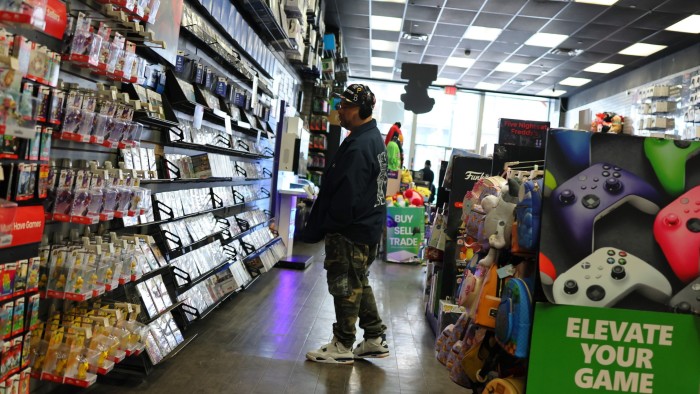Stay informed with free updates
Simply sign up to the US equities myFT Digest — delivered directly to your inbox.
Only a handful of US chief executives made well-timed stock buys during the tariff-induced market panic this month, as trading restrictions forced them on to the sidelines.
Two chief executives at companies worth more than $5bn ‘bought the dip’ when the market fell, according to data provider VerityData. But a larger group of executives had sold shares before President Donald Trump’s so-called “liberation day” announcements, including the bosses of PepsiCo and Jazz Pharmaceuticals.
Insiders often buy their own shares when markets are down. However, many executives were unable to jump on cheap shares because “liberation day” came as much of corporate America was barred from dealing ahead of first-quarter earnings.
“Simply put, the timing of the market disruption could not have come at a worse time for insiders because quarterly trading windows are closed at most US companies,” said Ben Silverman, vice-president of research at VerityData, which tracks company executives and directors’ share dealings based on regulatory filings.
Some CEOs who were able to buy saw it pay off. Ryan Cohen, chief executive of GameStop — a popular meme stock — bought 500,000 shares at $21.55 on April 3. In the days after the sell-off as the market calmed, GameStop’s shares closed at $26.78 on April 17. Cohen, who is GameStop’s second-largest shareholder, previously bought company stock in June 2023.
Gary Dickerson, the chief executive of Applied Materials, bought 50,000 shares on April 3 at $137 — the same as Thursday’s closing price. Board directors at Dollar Tree and Salesforce bought about $500,000 and $1mn respectively during the sell-off.
“We know from academic research corporate insiders are contrarians,” said Daniel Taylor, an accounting professor at the Wharton School. “When there is a big drop we have seen insiders start buying at the bottom.”
At some companies insiders started snapping up shares quickly after their earnings announcements. Goldman Sachs board director John Hess bought $2mn shares on April 15, the day after the bank reported earnings. Buying is extremely rare for Goldman insiders, and Hess’s purchase marks only the second at the bank since January 2009, disclosures show.
Company insiders have to disclose their transactions, and often have trading plans in place to automatically sell stock at certain times and share prices to avoid falling foul of insider trading rules.
Trump’s election win in November triggered a flurry of corporate executives selling. As a result, insiders were generally hesitant to sell in the first months of 2025 because “they’d generated a nice chunk of liquidity” already, Silverman said.
At Microsoft, no insider has sold stock this year, the longest pause in selling since 2022. The technology giant’s shares are down nearly 12 per cent this year.
Still, some corporate insiders sold stock between Trump’s inauguration in January and his tariffs announcement in April.
In early March, six Pepsi executives sold $18.4mn of stock when the company’s shares were above $150. Chief executive Ramon Laguarta sold 50,000 shares for $7.7mn, his largest sale at the company. These sales were not part of a preset trading schedule, regulatory disclosures show.
In its annual report on February 4, Pepsi added language to its risk disclosures saying new US tariffs on China, Mexico, Canada, and other countries could disrupt operations.
Pepsi’s stock closed at $143 on Thursday, trading down 6 per cent for the year. Pepsi declined to comment.
At other companies, executives accelerated their share sales as part of their stock trading plans.
Bruce Cozadd, the chief executive at Jazz Pharmaceuticals, sold 6,500 shares in March, his largest transaction since 2021. He sold at $144 on March 3, and the company’s shares are now trading at $103.
Jeff Green, the chief executive of Trade Desk, sold more than 900,000 shares on January 22, his largest transaction since 2021. He sold at $123 and the company’s shares are now trading at $50.
Dublin-based Jazz Pharmaceuticals said: “It is commonplace to have these plans in place to facilitate routine trading of company shares based on a pre-specified schedule.”
At Trade Desk, Green’s stock sales are part of a 10b5-1 plan, the company said.
Goldman Sachs, GameStop and Applied Materials did not respond to requests for comment.
Read the full article here




